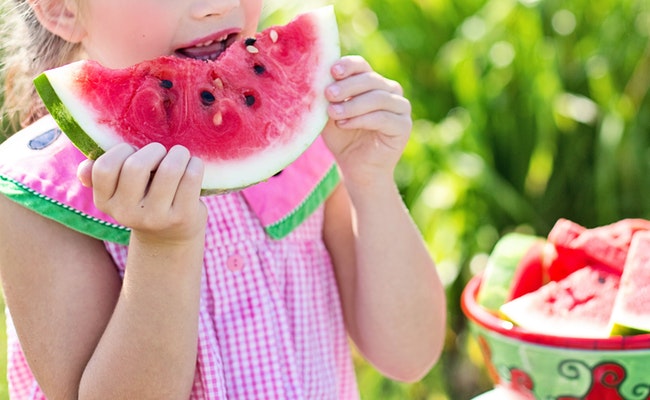
Picky eating is not a serious, life-threatening condition, but failing to correct this issue in young kids can lead to certain health risks in the short and long run.
If feeding your kids certain dishes and snacks, especially those with vegetables and fruits, is always a struggle, you need to find the right ways to deal with this problem quickly. Knowing a variety of great picky eater recipes is a start; arming yourself with some useful strategies and tips will help you out greatly, too.
Below are some tried-and-tested tips and strategies for correcting your little ones’ fussy eating habits:
1. Keep snacking to a minimum with only light, healthy snacks
Kids look forward to eating a yummy snack when they get home from school. They do need these after-school treats so that they’ll have the energy to do their homework, chores, and other activities.
However, make sure you don’t give your kids heavy, sugary, or salty treats so that during dinner, your kids will still feel hungry and more willing to eat new foods.

For their afternoon snacks, give them fresh fruits and veggies with dips, some nuts, and seeds, or even a trail mix. Although light, these treats are high in protein and will give them the energy they need to concentrate on and finish their tasks at hand.
2. Involve your children in planning and preparing the meals
If you include your kids in the menu planning process, they will be more likely to eat whatever is on the table. When planning your weekly menu and making your grocery shopping list, ask your children what foods or dishes they would like to eat. Take them with you when going to the grocery store and encourage them to choose and put healthy food options (this means fruits and veggies) in the cart.
Also, let your kids help you in the kitchen. Having your children help you during meal preparation offers a lot of benefits for both you and your little ones. You can teach your little ones some basic cooking skills and help them to understand some simple math and science concepts. Cooking with your kids is a great way to bond with and have honest talks with them as well.
When you allow your kids to help you prepare their meals and snacks, you also give them a sense of pride and ownership in the food that they helped create. This, in turn, can boost their interest and excitement in eating their creation when mealtime comes.
3. Work on your presentation
Although you may be serving a delicious dish, if your kids don’t like the way it looks, they won’t eat it. This is a common trait among picky eaters. If you want them to eat everything you prepare, you need to present the dish in a way that they will find appealing.
As such, make their foods colorful, fun, and interesting. You can use fresh fruits and vegetables to make different types of faces. You can also serve an assortment of fruit and veggie sticks and different dips and let your kids try various combinations. Try different ways of preparing or cooking veggies, too.
4. Set clear rules and be consistent in implementing them
Parents need to know the importance of setting and maintaining clear and consistent food rules all the time. Kids have to consistently follow these rules and there should be no exception.
One key dining rule that everyone has to follow is that there should be no short-order cooking. Everyone has to eat what is on the table. You should never whip up a different dish just because the kids are refusing to eat what is in front of them.
In such instances, encourage your children to try the dish and explain that they don’t have to finish what’s on their plate. Make a show of how much you like the dish as well so that your kids will be encouraged to take a bite and even more.
5. Make family mealtimes a habit
Get into the habit of encouraging everyone to be present at the table during dinner and other mealtimes.
It’s a good family bonding activity, and when your kids see you having healthy eating habits, they will follow your example, too. As such, set a time at night or any time of the day where everyone can be present at the table and enjoy a family meal.
Another important thing you have to remember when dealing with fussy eaters is to never equate food with their behavior. When you do this, you will cause various psychological and emotional problems in the future. Do not let your children think that eating is a symbol of esteem or love. Do not teach them to associate eating with negative feelings and punishment either.
Praise or show your appreciation to your kids if they tasted and enjoyed a new dish. However, avoid doing this if they only finished everything on their plate because they are afraid of getting reprimanded. It is important that you take the lead in helping kids develop a healthy relationship with food and to learn to exercise their own self-control towards their diet. You can do this by following the right tips and strategies and without resorting to punishments and frequent rewards.




